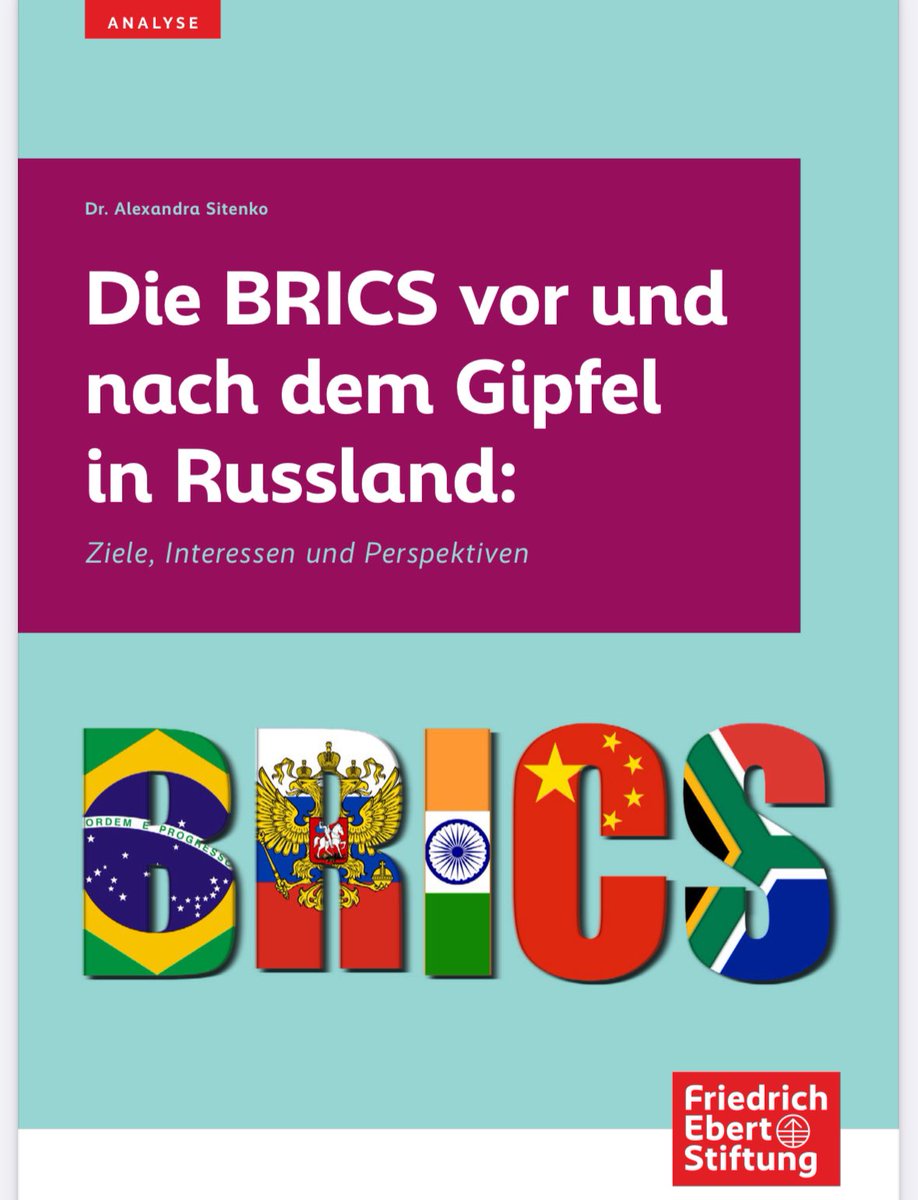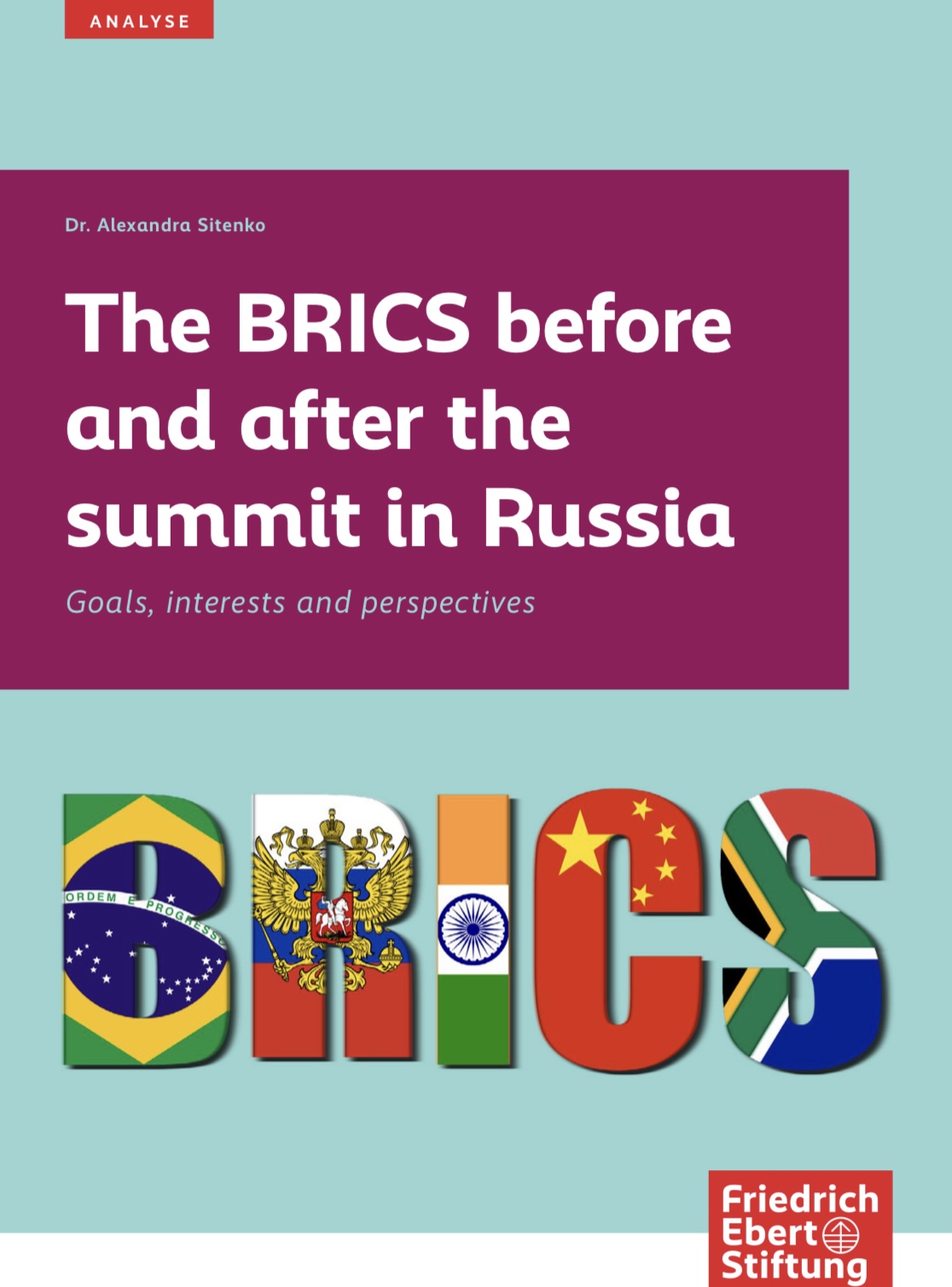Publications
Books

Die BRICS vor und nach dem Gipfel in Russland: Ziele, Interessen und Perspektiven
Ein alternatives globales zwischenstaatliches Bündnis wie die BRICS gibt den Ländern des Südens die Möglichkeit, sich in globalen Fragen zu koordinieren, und bringt sie an den Tisch der Entscheidungsträger. Die Zugehörigkeit zu einer Gruppe, die über eine nicht unerhebliche internationale Repräsentativität verfügt, kann als ein Statussymbol und die BRICS infolgedessen als ein Statusfaktor in der Weltpolitik gesehen werden. Die Schaffung von Synergien zwischen den Zielen des UN-Zukunftspakts und denen der BRICS-Gruppe könnte für den Westen ein möglicher Ansatz für ein konstruktives Engagement mit den BRICS sein.

The BRICS before and after the Summit in Russia
An alternative, global intergovernmental body, such as BRICS, inherently gives countries of the Global South the opportunity to coordinate on global issues and brings them to the table of decision-makers. Beyond the meaty economic and demographic shifts on their side, belonging to a group with considerable international representativeness can be seen as a status symbol in itself, and the BRICS can thus be considered as a decisive prestige factor in global politics. Creating synergies between the goals of the UN’s Pact for the Future and those of the BRICS group could be a possible approach for the West for constructive engagement with the BRICS.

Strategische Partnerschaften in der Außenpolitik
Former Russian President Dmitry Medvedev noted in 2010 that Russia had returned to Latin America. Using a multidimensional geopolitical approach, this academic study examines how the intensification of relations between Russia and three Latin American countries - Ecuador, Cuba and Brazil - came about. Drawing on insights from both practical politics and academic work, the author provides a definition of the hitherto vague concept of 'strategic partnership' and uses a process-oriented method to trace the evolution of these partnerships over the period 1992-2017.

Die Transatlantischen Beziehungen zwischen Russland und Venezuela
The study examines the reasons behind the intensification of bilateral cooperation between Venezuela and Russia by analysing foreign policy strategies of both countries since 1999, focusing on the areas of security, regional, economic and energy policy. The theories of political neorealism and constructivism serve as the theoretical basis.



